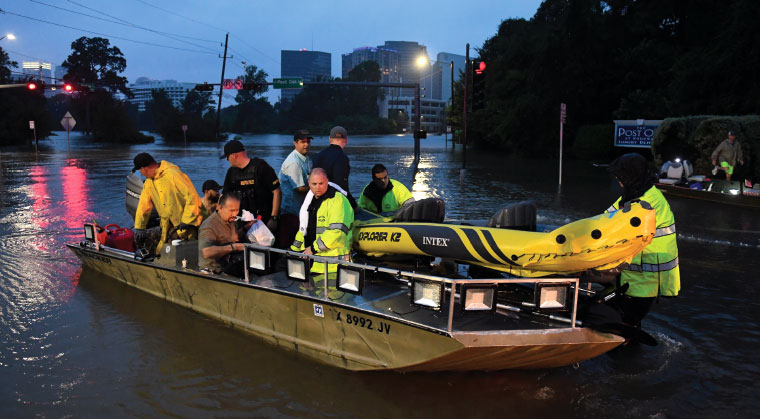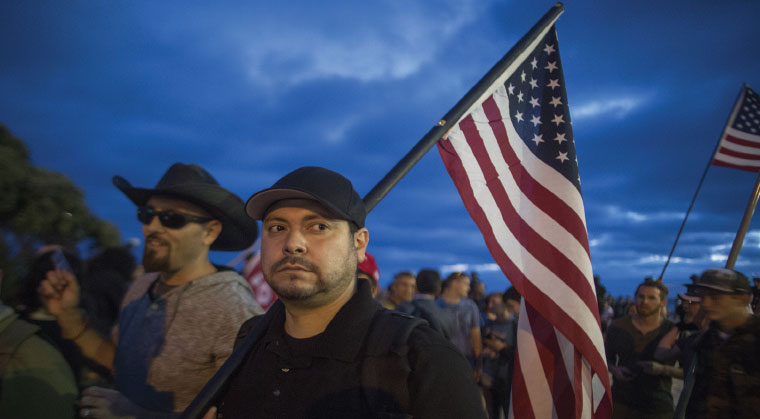“I Thought There Was Going to Be a Pogrom”
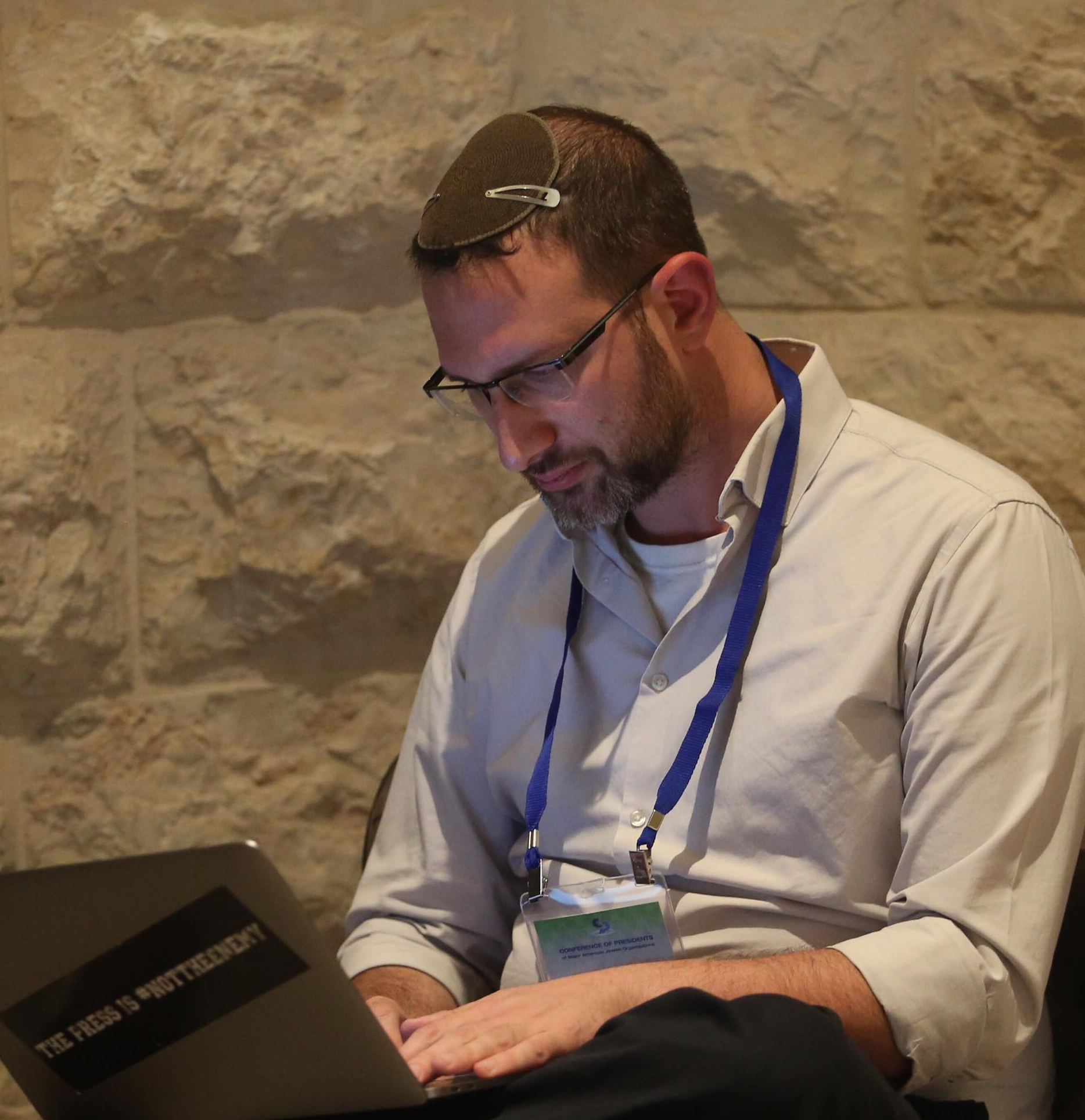
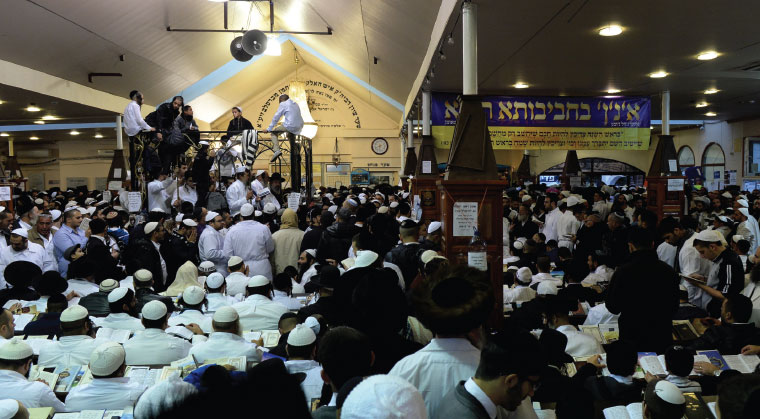
LIGHT IN DARKNESS Normally Rebbe Nachman’s kever is a place for prayer and meditation. That changed in an instant last Tuesday (Photos: AFP/Imagebank)
T he attack happened suddenly stoking fears of violence in a land soaked with Jewish blood. Shmuel Cohen was standing in the synagogue built atop Rebbe Nachman of Breslov’s kever in Uman Ukraine last week when vandals threw a severed pig’s head and blood-red paint into the holy structure.
“I thought there was going to be a pogrom” Cohen recalled in an interview with Mishpacha. The incident which occurred at 2 a.m. last Tuesday took only seconds to unfold recounted Cohen. Two men “entered and within three seconds threw the head and red paint and left ” he said. “I didn’t see their faces it was fast. One of the goyim filmed it when he was doing it. They had a jeep [waiting outside] and they fled.”
While day-to-day anti-Semitism isn’t a problem in Ukraine vandalism against Jewish sites has spiked since early 2014 when an uprising in Kiev (the so-called Euromaidan Revolution) ousted pro-Russian President Viktor Yanukovych and sparked a Russian-backed insurgency in the country’s east. A memorial at the Babi Yar massacre site in Kiev for instance was defaced six times in 2015. In 2014 several synagogues in Zaporizhya Simferopol Mykolaiv Kiev and Hust were targeted in attempted arson attacks.
And while Cohen said he does not feel anti-Semitism on a day-to-day basis in Uman the city which draws tens of thousands of Israeli and American pilgrims every year on Rosh Hashanah has long been a scene of friction between chassidim and locals.
This year members of the Ukrainian far right knocked down a tent city prepared for incoming Rosh Hashanah pilgrims. Over the years there have been multiple reported incidents of altercations between worshipers and locals many of whom are resentful over the cordoning off of entire neighborhoods for the Jews’ use.
Late last year residents of the city unveiled a statue in honor of Ivan Gonta and Maxim Zheleznyakov 18th-century Ukrainian revolutionaries who carried out a pogrom which according to some estimates killed between 20 000 and 30 000 Jews. This June two Israelis were held by police after shooting at random Ukrainians with a BB gun out of the window of a rented apartment. There have also been reports of drug use and other infractions by some Jewish visitors.
Anti-Semitism has become a political issue ever since the most recent conflict with Russia began. Both Kiev and Moscow assign blame for anti-Semitic incidents on the other. History has also become deeply politicized. In 2015 the Rada Ukraine’s parliament passed a series of bills known as the Decommunization Laws that forbid defaming the Organization of Ukrainian Nationalists a Nazi collaborationist organization implicated in the murders of thousands of Jews and tens of thousands of Poles across Western Ukraine during the Holocaust.
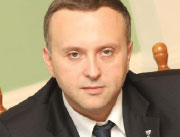
Eduard Dolinsky: “I believe that this is anti-Semitic. It’s in line with other anti-Semitic attacks in Uman that have happened before”
Attacks in Ukraine are frequently described by Ukrainians as provocations by the Kremlin which in turn has sought to delegitimize the Ukrainian government through news reports describing its leaders as fascists and neo-Nazis.
Following one of the incidents at Babi Yar then–prime minister Arseniy Yatsenyuk described efforts to deface the site not as a slight against Jews but rather as a political protest aimed at the Ukrainian government and state.
Similar statements were forthcoming following this week’s incident as well. Volodymyr Groysman the Jewish politician who succeeded Yatsenyuk as prime minister in April theorized that the Uman vandals sought to harm Ukraine-Israel relations. Israeli leaders had said they would raise the issue of security at Jewish sites with Groysman this week during a state visit to Jerusalem but Israel canceled the visit following Ukraine’s support of an anti-Israel settlement resolution at the United Nations.
Borislav Bereza former Jewish spokesman of the nationalist Right Sector movement and a current member of Parliament went even further terming the attackers “useful idiots” in the pay of the Russians.
However not everyone in the Jewish community agreed with that assessment.
“I believe more that this is anti-Semitic. It’s in line with other anti-Semitic attacks in Uman that have happened before” said Eduard Dolinsky the director of the Ukrainian Jewish Committee a Kiev-based advocacy group.
“Everyone is blaming Russia for Uman. It’s not serious” he said comparing people making such statements to children.
Meanwhile back in Uman anger at the attack remains regardless of its origin. In a cell phone video posted online young men are seen standing around looking at the paint smeared across the floor as the photographer bitterly laments what happened. “May their names and memories be erased ” he said.
(Originally featured in Mishpacha, Issue 641)
Oops! We could not locate your form.



